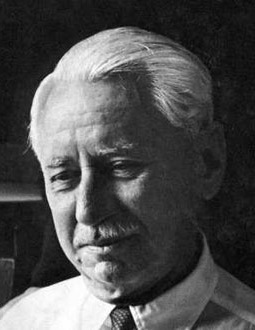Will Durant: The Value of Philosophy

Readers of this blog know that Will Durant is one of my intellectual heroes.
William James “Will” Durant (/dəˈrænt/; November 5, 1885 – November 7, 1981) was an American writer, historian, and philosopher. He is best known for The Story of Civilization, 11 volumes written in collaboration with his wife, Ariel Durant, and published between 1935 and 1975. He was earlier noted for The Story of Philosophy (1926), described as “a groundbreaking work that helped to popularize philosophy”.[1] … The Durants were awarded the Pulitzer Prize for General Non-Fiction in 1968 and the Presidential Medal of Freedom in 1977. (from Wikipedia)
For many years I introduced philosophy in my college classes by discussing the value of philosophy. One of the most beautiful statements on that topic is from the introduction to Durant’s Pleasures of Philosophy[image error], a book I encountered in my late teens. Here is Durant’s beautiful prose:
The busy reader will ask, is all this philosophy useful? It is a shameful question: we do not ask it of poetry, which is also an imaginative construction of a world incompletely known. If poetry reveals to us the beauty our untaught eyes have missed and philosophy gives us the wisdom to understand and forgive, it is enough, and more than the world’s wealth. Philosophy will not fatten our purses nor lift us to dizzy dignities in a democratic state; it may even make us a little careless of these things. For what if we should fatten our purses, or rise to high office and yet all the while remain ignorantly naive, coarsely unfurnished in the mind, brutal in behavior, unstable in character, chaotic in desire and blindly miserable? …
Our culture is superficial today and our knowledge dangerous, because we are rich in mechanism and poor in purposes. the balance of mind which once came of a warm religious faith is gone; science has taken from us the supernatural bases of our morality and all the world seems consumed in a disorderly individualism that reflects the chaotic fragmentation of our character.
We face again the problem that harassed Socrates: how shall we find a natural ethic to replace the supernatural sanctions that have ceased to influence the behavior of men? Without philosophy, without that total vision which unifies purposes and establishes the hierarchy of desires we fritter away our social heritage in cynical corruption on the one hand and in revolutionary madness on the other; we abandon in a moment our idealism and plunge into the cooperative suicide of war; we have a hundred thousand politicians, and not a single statesman.
We move about the earth with unprecedented speed, but we do not know, and have not thought where we are going, or whether we shall find any happiness there for our harrassed souls. We are being destroyed by our knowledge which has made us drunk with our power, and we shall not be saved without wisdom.
I know no better statement of the value of loving wisdom.



